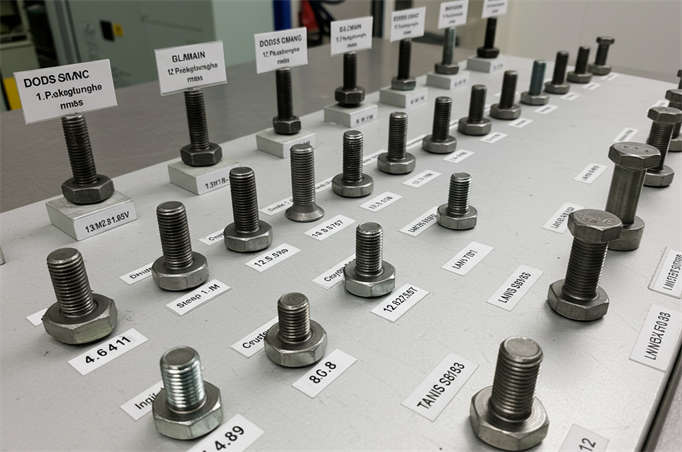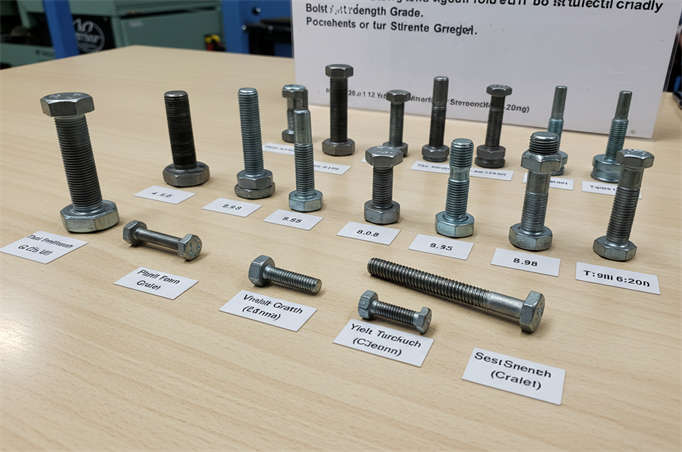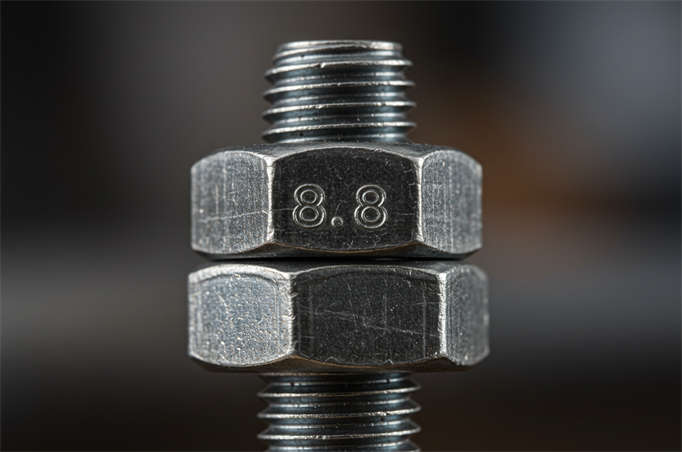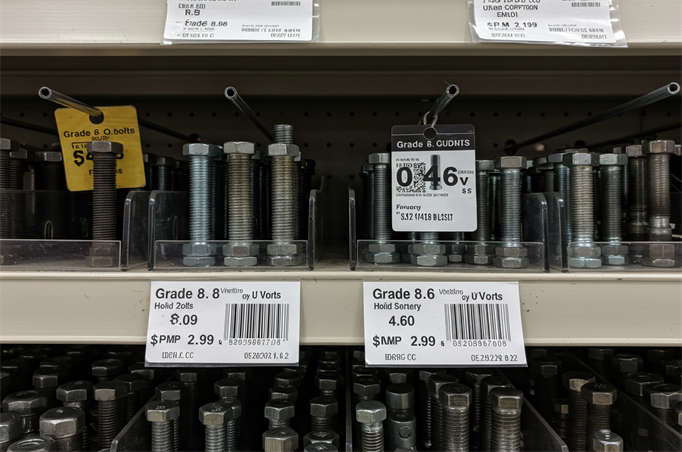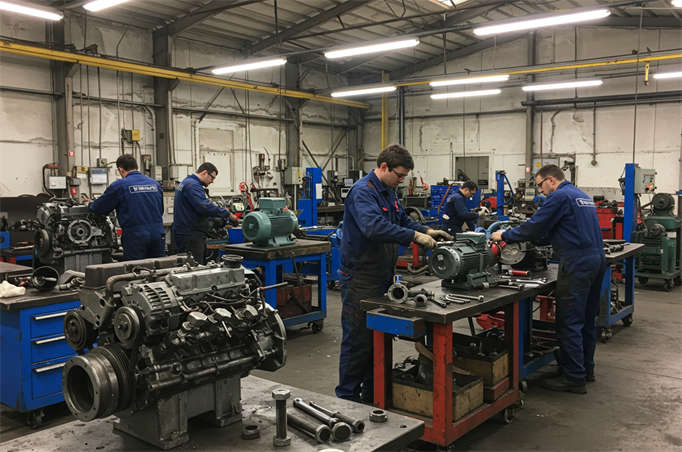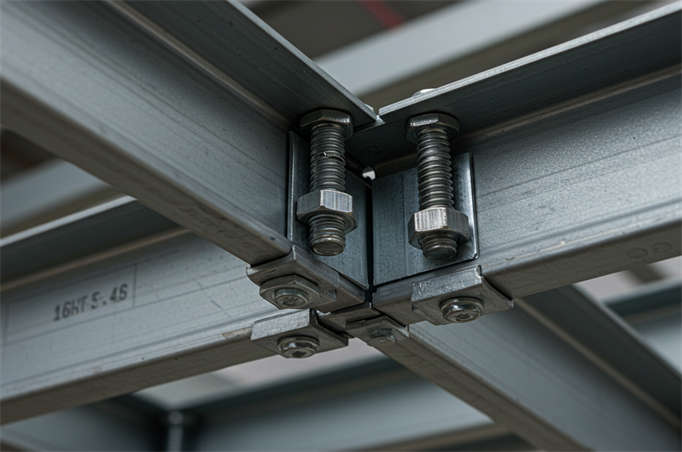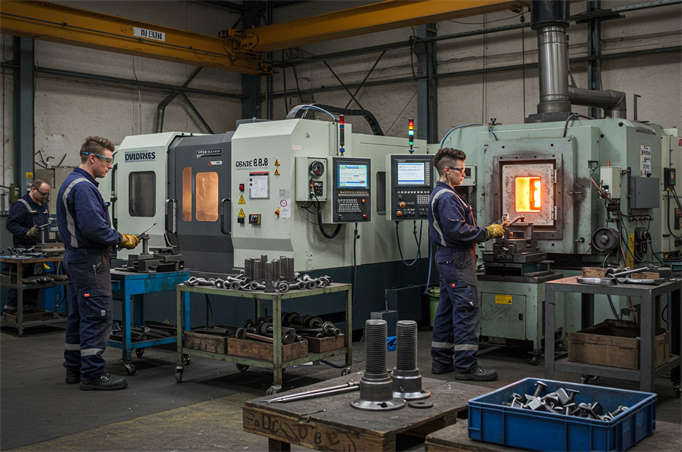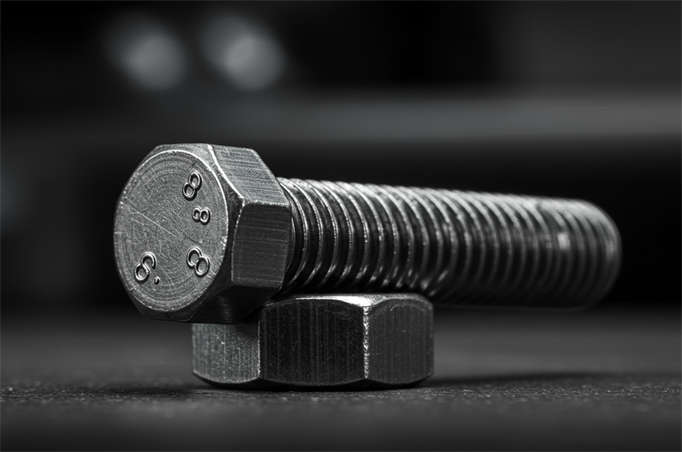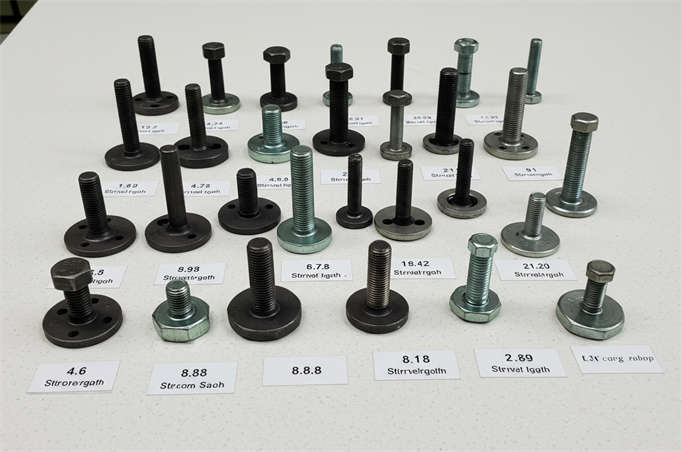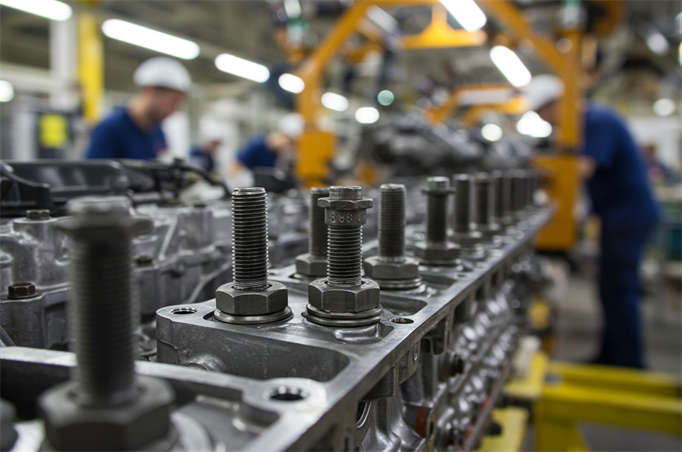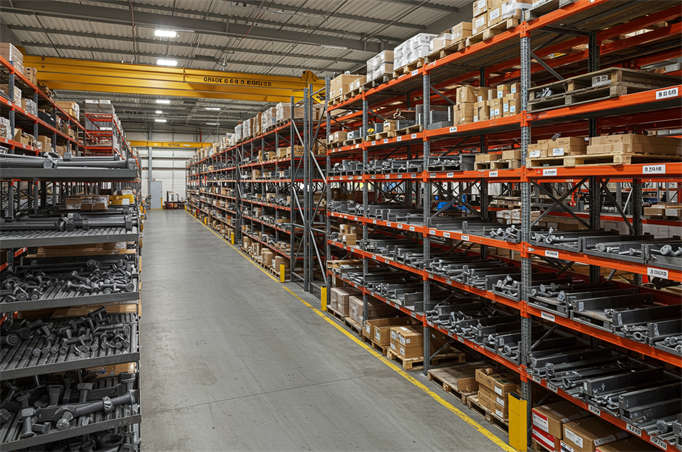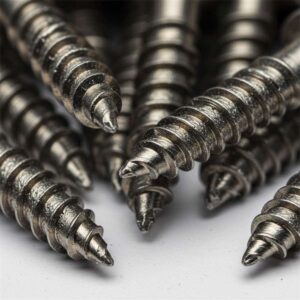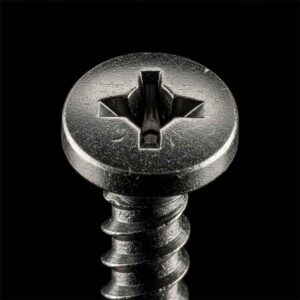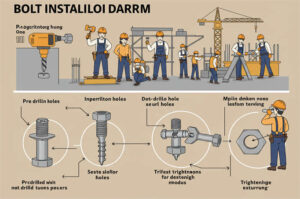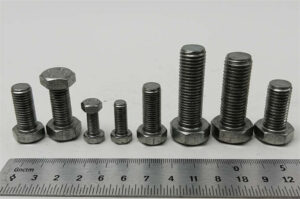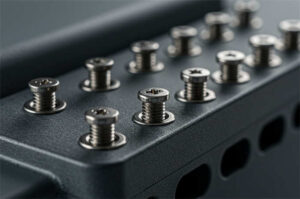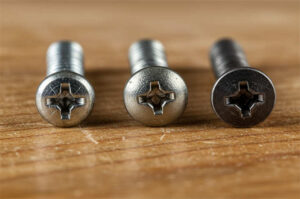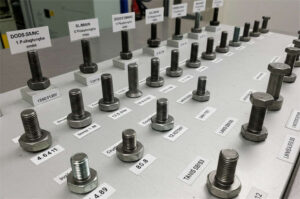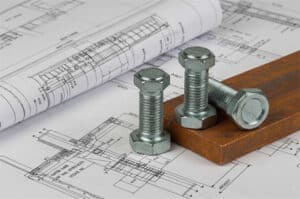Na Prince Fastener, entendemos que o mundo dos fixadores é vasto e complexo, com cada componente desempenhando um papel crucial na funcionalidade e segurança de inúmeras estruturas e máquinas. Hoje, vamos nos aprofundar em graus de resistência dos parafusosO objetivo deste artigo é mostrar a força do parafuso de grau 8 e sua importância em vários setores. Nossa ampla experiência no setor de fixadores tem como objetivo esclarecer as diferenças entre as classes de parafusos, especialmente as classes 8.8 e 4.6, e como elas atendem a diferentes requisitos de aplicação. Nesta postagem do blog, exploraremos as características de resistência dos parafusos de grau 8, suas aplicações e quando eles são a escolha ideal para seus projetos. Nosso objetivo é equipá-lo com o conhecimento necessário para tomar decisões informadas ao selecionar fixadores para suas necessidades específicas, garantindo confiabilidade e desempenho em todas as aplicações.
Entendendo os graus de resistência dos parafusos
O setor classifica os graus de resistência dos parafusos com base em sua resistência à tração e resistência ao escoamento, indicadas por um "ponto" ou uma "combinação de números". De acordo com os padrões comuns, os parafusos de aço-carbono e de aço-liga apresentam graus de resistência como 4,6, 4,8, 5,6, 5,8, 8,8, 9,8, 10,9 e 12,9.
Na designação "X.Y", "X" indica a resistência nominal à tração do material do parafuso em MPa (megapascal). A resistência nominal à tração representa a tensão máxima que o material pode suportar durante o estiramento; em outras palavras, é a resistência do material à fratura. Por exemplo, um parafuso de grau 8.8 tem uma resistência à tração nominal de 800 MPa.
"Y" indica a taxa de resistência ao escoamento do material do parafuso. A resistência ao escoamento é o valor de tensão no qual o material começa a se deformar permanentemente sob força de tração. É um fator crucial para medir a resistência do material à deformação. A resistência ao escoamento de um parafuso de grau 8,8 é 800 MPa × 0,8 = 640 MPa.
Entendendo os graus de resistência das porcas
O princípio por trás da classificação dos graus de resistência das porcas é semelhante ao dos parafusos. Os graus comuns incluem 4,8, 6,8, 8,8 e 10,9.
A resistência à tração nominal de uma porca de grau 4,8 é de 400 MPa e sua resistência ao escoamento é de 400 MPa × 0,8 = 320 MPa. Essas porcas são adequadas para conexões estruturais gerais, como conexões de componentes em estruturas de aço leve.
Os diferentes graus de resistência dos fixadores são adequados para várias condições de trabalho. Os parafusos e porcas de alta resistência (como os de grau 8.8 e superiores) servem principalmente para componentes de conexão críticos que suportam cargas significativas e cargas dinâmicas, como conexões em peças de motores automotivos e componentes significativos de transmissão mecânica. Graus de resistência mais baixos (como 4.6) são apropriados para conexões gerais que sofrem forças menores, como conexões internas de quilha de aço leve.
A Prince Fastener explica as diferenças de aplicação entre os parafusos de grau 8.8 e 4.6
Os parafusos de grau 8.8 e 4.6 apresentam diferenças distintas em suas aplicações. Aqui está uma visão geral simples da Prince Fastener:
Parafusos de grau 8.8
Formulários: Geralmente, usamos esses parafusos em áreas cruciais de automóveis, fabricação de máquinas, estruturas de edifícios de aço, pontes e vasos de pressão - aplicações que exigem alta capacidade de suporte de carga e resistência a cargas dinâmicas.
Principais usos: Na fabricação de automóveis, eles apertam os componentes principais, como motores e transmissões, que sofrem vibrações e forças de impacto significativas durante a operação do veículo. A alta força e a resistência ao desgaste dos parafusos de grau 8.8 garantem a estabilidade da conexão. As estruturas de edifícios de aço conectam componentes vitais de suporte de tensão, como vigas e colunas, proporcionando estabilidade estrutural contra cargas de vento, terremotos e outras forças externas.
Parafusos de grau 4.6
Formulários: Aplicamos esses parafusos principalmente em conexões gerais que sofrem menor tensão, como estruturas de aço leve, componentes mecânicos auxiliares em geral e instalação de equipamentos comuns.
Principais usos: Construções leves de aço, como armazéns simples e prédios de aço pré-fabricados, conectam componentes de suporte de carga não críticos, como painéis de parede e telhados. Em maquinário tradicional, eles prendem tampas de proteção, bases e outros componentes auxiliares onde a carga é pequena e os parafusos de grau 4.6 atendem aos requisitos de aperto.
Resumo da comparação da Prince Fastener:
Aspecto de força: Os parafusos de grau 8.8 possuem uma resistência à tração significativamente maior e resistência ao escoamento do que os parafusos de grau 4.6. Portanto, em áreas que exigem aperto de alta resistência, os parafusos de grau 8.8 são a escolha preferida. Por outro lado, os parafusos de grau 4.6 são adequados para situações com requisitos de aperto de menor resistência.
Aspecto da aplicação: Os parafusos de grau 8.8 servem principalmente para conexões estruturais críticas e vitais em que a estabilidade da conexão é fundamental. Os parafusos de grau 4.6 geralmente conectam peças comuns e não críticas em que a sensibilidade ao custo é um fator.
Prince Fastener analisa: As diferenças de preço entre os parafusos de grau 8.8 e 4.6
Os parafusos de grau 8.8 e grau 4.6 apresentam diferenças significativas de preço. A Prince Fastener fornece uma análise detalhada:
Custos de material: Os parafusos de grau 8.8 utilizam materiais de alta resistência, como aço-liga de baixo carbono ou aço de médio carbono. Eles exigem tratamento térmico (como têmpera e revenimento) para aumentar a resistência e a tenacidade, o que leva a custos mais altos de material. Os parafusos de grau 4.6 normalmente usam aço carbono de alta qualidade sem tratamento térmico especial, reduzindo os custos de material.
Processo de fabricação: O processo de produção dos parafusos de grau 8.8 é mais complexo, exigindo maior conhecimento técnico e investimento em equipamentos. A precisão de fabricação necessária também é maior, aumentando significativamente os custos de produção. Em contrapartida, o processo de fabricação dos parafusos de grau 4.6 é mais simples, com requisitos de precisão menores e, consequentemente, custos mais baixos.
Desempenho e aplicação: Os parafusos de grau 8.8 apresentam alta resistência e tenacidade, o que os torna adequados para componentes críticos em estruturas automotivas, de fabricação de máquinas e de construção em aço, onde a confiabilidade da resistência da conexão é crucial. Apesar de seu preço relativamente mais alto, seus As características de desempenho justificam seu uso generalizado nesses campos. Os parafusos de grau 4.6 têm menor resistência e servem principalmente para conexões gerais ou fixação temporária, com aplicações mais básicas e um preço relativamente mais baixo.
Demanda do mercado: Os parafusos de grau 8.8 atendem à demanda por conexões de maior resistência. A escassez ocasional de suprimentos pode levar a aumentos de preços. Devido a seus cenários de aplicação limitados, a demanda do mercado por parafusos de grau 4.6 é relativamente estável, com ampla oferta e menor flutuação de preços.
Exemplo de diferença de preço específica: Considerando as especificações padrão, o preço de um parafuso M12×40 de grau 8,8 pode ser aproximadamente o dobro de um parafuso de grau 4,8 (características semelhantes às do grau 4,6) do mesmo tamanho.
prendedor de príncipe Destaques: Resistência do parafuso de grau 8.8
Os parafusos de grau 8.8 são fixadores de alta resistência. Suas características de resistência, como explica a Prince Fastener, são determinadas pela resistência à tração e pela resistência ao escoamento do parafuso:
Resistência à tração: Um parafuso de grau 8.8 tem uma resistência à tração de 800 MPa. Esse significa que o parafuso pode suportar uma tensão máxima de 800 MPa sob força de tração antes de se romper.
Força de rendimento: A força de escoamento é 80% da força de tração, 640MPa. A resistência ao escoamento é o valor de tensão no qual o parafuso começa a se deformar permanentemente sob força de tração. Quando um parafuso atinge seu limite de elasticidade, ele passa por uma mudança significativa de formato, mesmo que a tensão não aumente mais, o que pode levar ao afrouxamento ou à falha da conexão.
As características de alta resistência dos parafusos de grau 8.8 os tornam adequados para componentes de conexão críticos em automóveis, fabricação de máquinas e estruturas de construção de aço que precisam suportar cargas estáticas e dinâmicas significativas. Eles garantem a confiabilidade e a estabilidade das conexões em várias aplicações.
Comparações do Prince Fastener: Resistência do parafuso de grau 8.8 vs. grau 12.9
A Prince Fastener observa que os parafusos de grau 12.9 apresentam maior resistência em comparação com os parafusos de grau 8.8A empresa está se preparando para o mercado, principalmente nos seguintes aspectos:
Resistência à tração:
- Parafusos de grau 8.8: A resistência à tração é de 800 MPa, o que significa que cada milímetro quadrado da área da seção transversal do parafuso pode suportar uma força de tração de 800 newtons.
- Parafusos de grau 12.9: Atingem uma resistência à tração de 1200 MPa. Cada milímetro quadrado da área da seção transversal do parafuso pode suportar uma força de tração de 1.200 newtons, significativamente maior do que a dos parafusos de grau 8.8.
Força de rendimento:
- Parafusos de grau 8.8: A resistência ao escoamento é de 640 MPa. Quando o parafuso sofrer estresse de tração, ele sofrerá uma mudança significativa de forma a 640 MPa.
- Parafusos de grau 12.9: A resistência ao escoamento é de 1100 MPa, consideravelmente maior do que a dos parafusos de grau 8.8. Esse significa que os parafusos de grau 12.9 podem manter a deformação elástica sob tensão mais alta e são menos propensos a falhas.
Dureza:
- Parafusos de grau 8.8: Normalmente, têm uma dureza entre 29 e 34HRC.
- Parafusos de grau 12.9: Possuem maior dureza, geralmente entre 35-40HRC. Essa dureza maior confere aos parafusos maior resistência ao desgaste e à deformação.
Em resumo, da Prince Fastener: Os parafusos de grau 12.9 oferecem resistência e dureza superiores, o que lhes permite suportar maior tensão e pressão. Eles são adequados para aplicações exigentes de engenharia de maquinário, automotiva e aeroespacial, em que a resistência da conexão é fundamental. Os parafusos de grau 8.8 são amplamente utilizados em aplicações industriais gerais, como estruturas de edifícios de aço.
Quando usar parafusos 8.8?
A Prince Fastener geralmente recomenda o uso de parafusos de grau 8.8 nas seguintes situações:
Setor de construção
Estruturas de edifícios de aço: Nas estruturas de edifícios de aço, nós os usamos para conectar alguns componentes de suporte de carga não críticos, como painéis de parede e telhados. Esses componentes sofrem cargas relativamente pequenas, e os parafusos de grau 8.8 atendem aos requisitos de aperto e oferecem uma solução econômica.
Conexões gerais do edifício: Em geral, nas conexões de construção em que os requisitos de resistência não são particularmente altos, como andaimes e suporte de fôrmas, os parafusos de grau 8.8 oferecem resistência de conexão suficiente para garantir a segurança durante a construção.
Fabricação de máquinas
Equipamento mecânico leve: Adequado para conectar componentes auxiliares em algumas máquinas leves, como capas de proteção e assentos. Esses componentes normalmente suportam pequenas cargas, e os parafusos de grau 8.8 atendem aos requisitos de aperto e são fáceis de instalar e desmontar.
Componentes mecânicos gerais: Ao conectar alguns componentes mecânicos gerais, como a instalação e a fixação de motores e bombas comuns, os parafusos de grau 8.8 fornecem conexões confiáveis para garantir a operação regular do equipamento.
Setor de transportes
Componentes automotivos gerais: Na fabricação de automóveis em geral, eles conectam peças automotivas não críticas, como carrocerias e assentos. Esses componentes têm requisitos de resistência mais baixos para os parafusos, e os parafusos de grau 8.8 atendem a essas necessidades de aplicação e, ao mesmo tempo, controlam os custos.
Equipamento de transporte geral: Ao conectar alguns equipamentos de transporte em geral, como paletes e prateleiras, os parafusos de grau 8.8 oferecem resistência de conexão suficiente para garantir o transporte seguro de mercadorias.
Outros aplicativos
Montagem de equipamentos leves: Ao instalar equipamentos leves, como unidades externas de ar-condicionado e aquecedores solares de água, os parafusos de grau 8.8 fixam com segurança o equipamento em paredes ou suportes, garantindo uma operação eficiente.
Conexões estruturais temporárias: Para algumas estruturas temporárias, como estandes de exposição e prédios de aço pré-fabricados, os parafusos de grau 8.8 oferecem conexão e desmontagem rápidas e fáceis, atendendo às necessidades de uso temporário.
Compreender os graus de resistência dos parafusos é essencial para Escolhendo os fixadores corretos que atendem às demandas de seus projetos. Os parafusos de grau 8, com sua resistência e versatilidade equilibradas, oferecem uma excelente solução para uma ampla gama de aplicações, desde a construção até o maquinário. Na Prince Fastener, temos o compromisso de fornecer fixadores de alta qualidade que atendem aos mais altos padrões de resistência e durabilidade. Temos orgulho de oferecer uma gama diversificada de soluções em fixadores, inclusive parafusos de grau 8, para atender às diversas necessidades de nossos clientes. Quer esteja trabalhando em um projeto industrial complexo ou em uma simples tarefa de construção, nossa equipe está aqui para ajudá-lo a encontrar os fixadores perfeitos que garantam a segurança, a estabilidade e a longevidade de suas estruturas e equipamentos. Lembre-se, fazer a escolha certa é importante quando se trata de fixadores, e a Prince Fastener é sua parceira de confiança nessa decisão.
